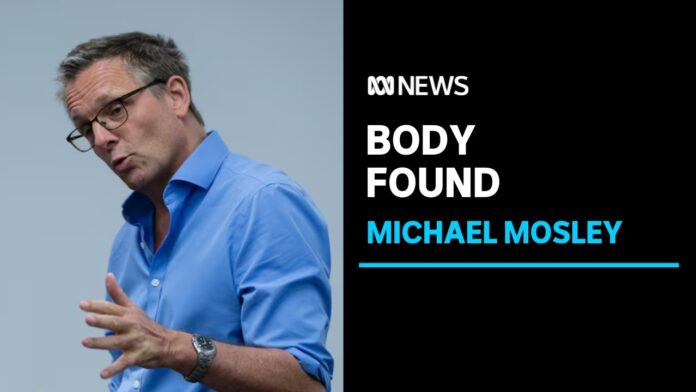Autopsy reveals Michael Mosley died of natural causes on the day of disappearance
Dr Michael Mosley, a beloved TV doctor and science communicator, tragically passed away on the Greek island of Symi. Mosley, 67, set off for a coastal walk from Saint Nikolas beach last Wednesday, leaving behind his mobile phone. By 4 pm that day, he had died from natural causes, according to initial autopsy findings.
His body was discovered five days later in a rocky area near Agia Marina beach. The discovery was made by a British TV reporter who was part of the extensive search effort. Local bar staff expressed surprise that Mosley’s body had not been found sooner, considering the search’s intensity and scope.
Mosley was renowned for making complex scientific subjects accessible to the public through his numerous BBC documentaries, TV appearances, and bestselling books. His passing has left a significant void in the scientific community and among his many fans. The BBC plans to air a special tribute to honour his contributions.
Analysis:
Political Impact
Michael Mosley’s untimely death has had a profound impact on public discourse, particularly highlighting the need for better safety measures for tourists in extreme weather conditions. Politicians might leverage this event to advocate for improved public safety information and infrastructure in popular tourist destinations. Additionally, Mosley’s work in public health and science communication underscores the importance of funding and supporting educational programs that make science accessible to a broader audience.
Social Reflection
Mosley’s death has sparked conversations about the risks associated with solo travel and the importance of taking precautions, especially in unfamiliar and potentially hazardous environments. This incident has highlighted the value of public awareness campaigns that educate travellers on safety measures and the importance of staying connected with loved ones while exploring new places. Furthermore, the outpouring of tributes and condolences reflects a societal appreciation for individuals who dedicate their lives to educating the public and promoting health and well-being.
Psychological Aspect
The psychological impact of Mosley’s death resonates deeply with his followers and the general public. As someone who openly shared his health battles and personal experiments, Mosley had a unique connection with his audience. His passing may evoke collective grief, akin to losing a trusted friend and mentor. This incident also serves as a poignant reminder of the fragility of life, encouraging individuals to cherish their health and well-being and to seek balance in their pursuit of professional and personal passions.
Sociological Angle
From a sociological perspective, Mosley’s death underscores the intersection of media, health, and public engagement. His ability to simplify complex scientific concepts and present them in an engaging manner played a significant role in shaping public understanding of health and science. This tragic event might prompt a reevaluation of how society values and supports science communicators, emphasizing the need for continued investment in public science education. Additionally, it raises questions about the societal pressures placed on public figures and the potential health risks associated with their demanding roles.
Fashion Culture
While Mosley was not directly associated with fashion, his influence extended to lifestyle choices that intersected with personal appearance and wellness. His advocacy for healthy living, intermittent fasting, and overall well-being contributed to broader cultural trends emphasizing health and fitness. His passing may inspire a renewed focus on these lifestyle choices within fashion and wellness communities, highlighting the importance of holistic health over aesthetic trends.
